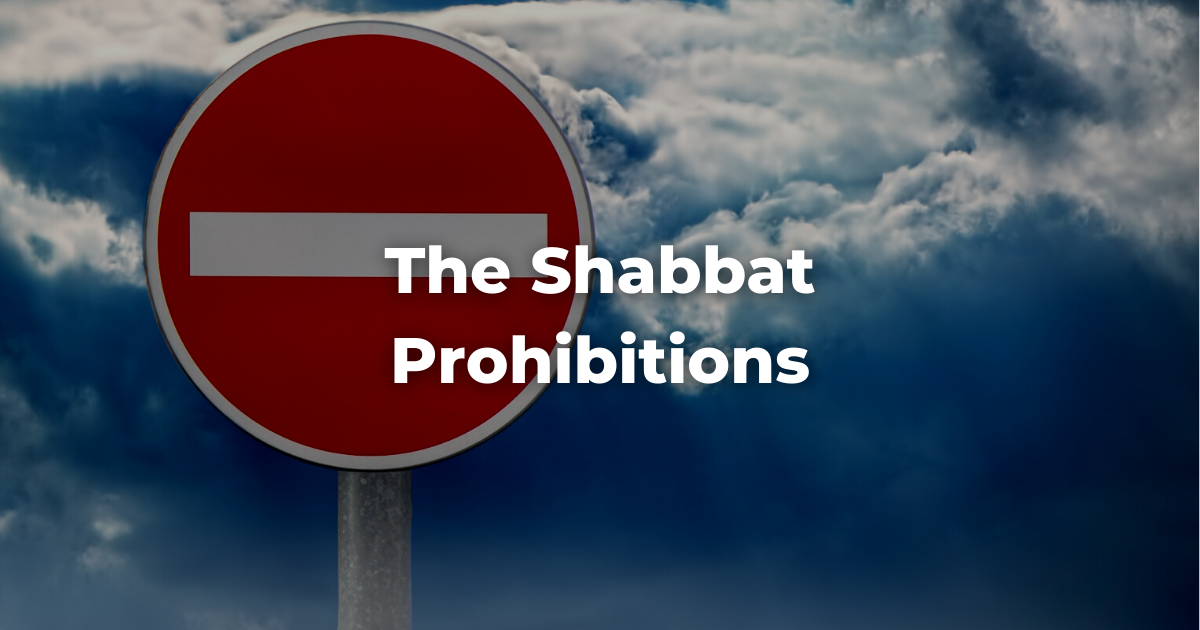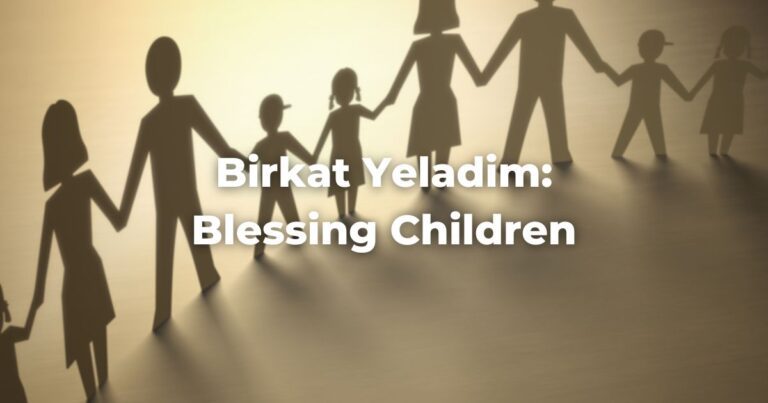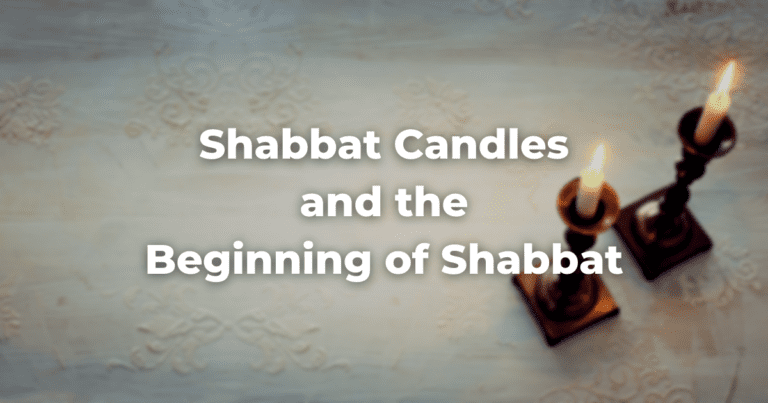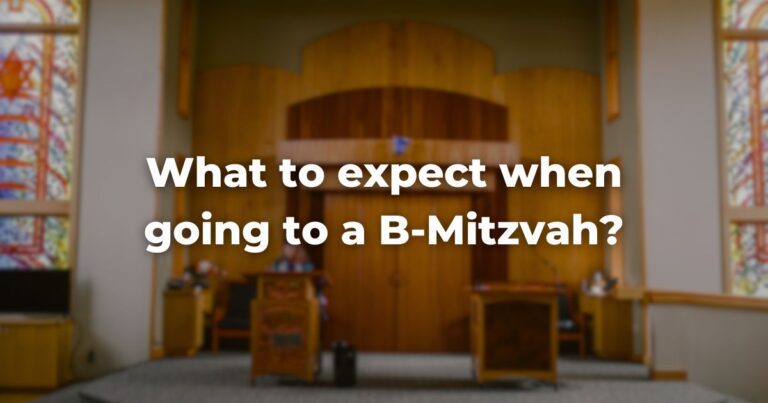Shabbat is governed by two sets of commandments, positive ones and negative ones. The positive ones, ordaining that we do specific things, give Shabbat its unique character. The negative ones, the ones specifying things that must not be done, are prohibitions that prevent Shabbat from becoming an ordinary day like any other.
The uninitiated might view the restrictions as infringements on their freedom to conduct their affairs as they wish, but others will see these prohibitions as a very effective means to ensure their freedom from the ordinary, mundane, burdensome demands of the everyday world.
As with all aspects of Jewish ritual, what at first seems different and even difficult soon becomes more familiar, more natural, and more comfortable.
Understanding “Labor”
The ancient rabbis took the term m’lakhah (“work” also spelled melakhah) in the Ten Commandments as a technical term, not as a general reference to labor.
From the perspective of the halakhah, therefore, the text would read: “Remember the Shabbat day to keep it holy. Six days shall you labor and do all forms of m’lakhah, but the seventh day is a Shabbat of the Eternal, your God: [on it] you shall not do any m’lakhah” (Exodus 20:8–10).
We might best define m’lakhah as referring specifically to “creative endeavor,” especially given that this very same Hebrew root is used to refer to God’s efforts in creating the world: “On the seventh day,” the Bible teaches at Genesis 2:2, “God finished the m’lakhah of making the world.”
From this, it is clear that God’s m’lakhah is creation.
The rabbis of the TalmudReferring to one of two collections, the Jerusalem and Babylonian Talmuds, edited in the 6th century, that contains hundreds of years of commentary, discussion, and exploration of the ideas in the Mishnah. One could describe it as Mishnah + Gemara = Talmud Read more, noting the juxtaposition of Shabbat prohibitions at Exodus 31:12–17 and the laws of the Tabernacle at Exodus 31:1–10, reasoned that those activities necessary to constructing the Tabernacle were the very ones prohibited on Shabbat.
The 39 Prohibited Shabbat Labors
Thus, they spoke of thirty-nine avot m’lakhah (that is, thirty-nine broad, archetypal categories of labor) prohibited on Shabbat.
The MishnahA collection of rabbinic teachings edited in Israel around 225 CE. Organized in six sedaraim by subject matter and dealing with both ritual and civil law. Both the Jerusalem and Babylonian Talmud are expansive discussions of the Mishnah. Read more lists them at Mishnah Shabbat 7:2 as follows:
sowing, plowing, reaping, binding (of sheaves), threshing, winnowing, separating fit from unfit crops, grinding, sifting, kneading, baking, shearing wool, washing it, beating it, dyeing it, spinning it, weaving it, making two loops, weaving two threads, separating two threads, tying, untying, sewing two stitches, tearing in order to sew two stitches, trapping a deer, slaughtering it, flaying its skin, salting its flesh, curing its hide, scraping its hide, cutting it up, writing two letters, erasing two letters in order to write two letters, building, tearing down, extinguishing a flame, kindling a flame, beating with a hammer, and moving from one domain to another.
To these avot m’lakhah, the rabbis added a long list of toladot (literally, “offspring”) that they perceived to issue, like descendants, from the broader categories.
For example, planting is an av m’lakhah, while watering that same plant is a toladah of planting. Kindling a fire is an av m’lakhah, whereas adding oil to a preexisting fire is a toladah of kindling. While the Tabernacle no longer exists, the numerous categories of work forbidden on Shabbat derived from the Tabernacle narrative still do.
For moderns, the concept of m’lakhah can also be interpreted in a broader sense that enhances the ancient rubrics without replacing them.
Rabbi Samuel Dresner, for example, writing in The Sabbath (New York: United Synagogue of America, 1970, p. 81), taught that the larger category of “work” should include:
earning one’s livelihood, engaging in business or commercial transactions, shopping, performing strenuous physical exertion, changing the physical world by kindling or extinguishing a flame, repairing, improving, constructing, destroying, planting, cooking, sewing, writing, tearing, traveling from one community or neighborhood to another, making preparations during Shabbat for events that will take place after Shabbat ends, engaging in any activity that constitutes drudgery, allowing oneself to be pre- occupied, distracted, or anxious about any of the above, or to be angry, hateful, grieved, or despairing about anything at all, and defiling, profaning, or cheapening the precious holiness of Shabbat by deed, word, or thought.
Thus, according to this wider concept, the prohibition of doing m’lakhah on Shabbat would include going to work, doing one’s household chores, and even doing homework.
Adapted with permission from The Observant Life.
Authors
-

The Observant Life: The Wisdom of Conservative Judaism for Contemporary Jews distills a century of thoughtful inquiry into the most profound of all Jewish questions: how to suffuse life with timeless values, how to remain loyal to the covenant that binds the Jewish people and the God of Israel, and how to embrace the law while retaining an abiding sense of fidelity to one’s own moral path in life. Written in a multiplicity of voices inspired by a common vision, the authors of The Observant Life explain what it means in the ultimate sense to live a Jewish life, and to live it honestly, morally, and purposefully. The work is a comprehensive guide to life in the 21st Century. Chapters on Jewish rituals including prayer, holiday, life cycle events and Jewish ethics such as citizenship, slander, taxes, wills, the courts, the work place and so much more.
View all posts -







